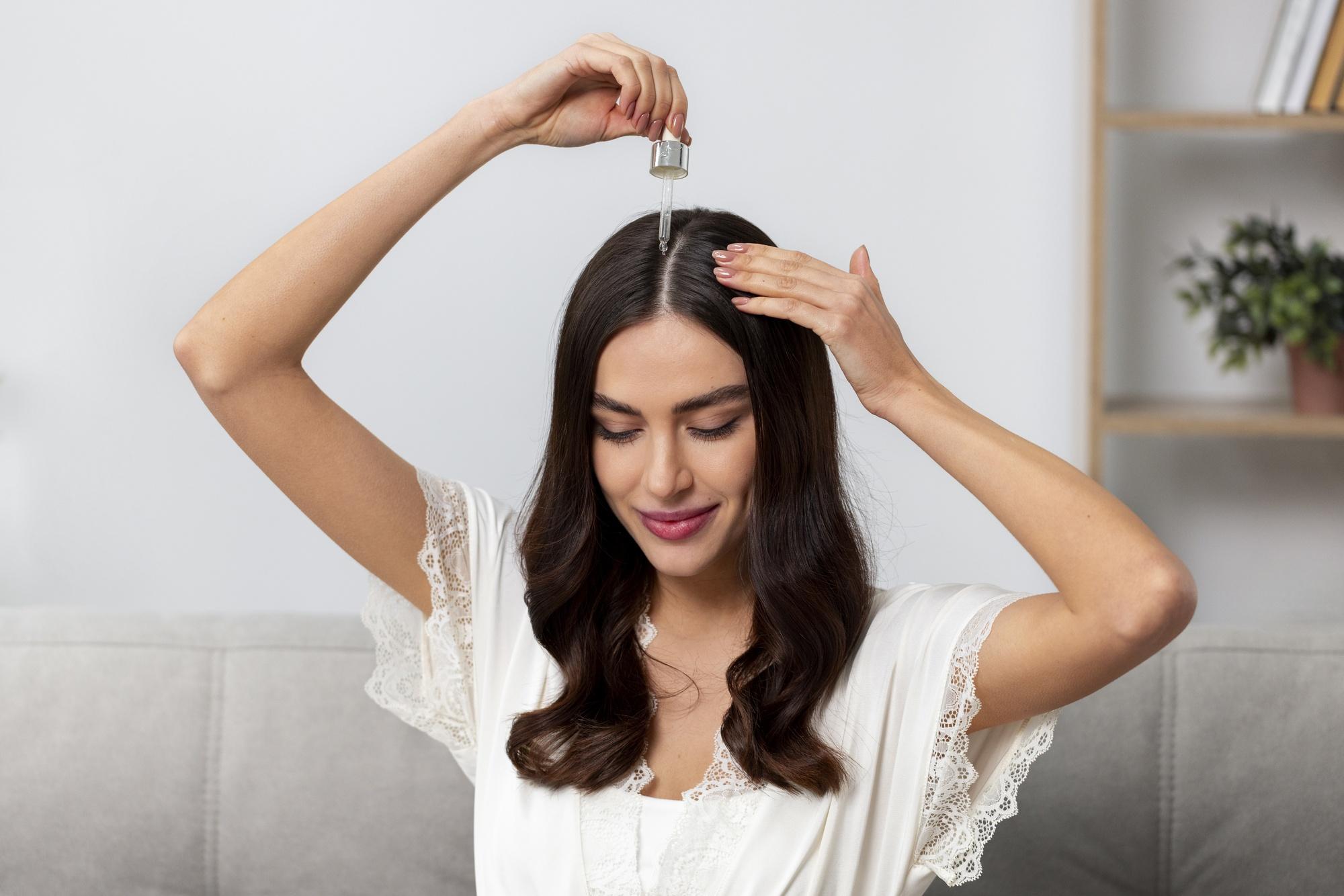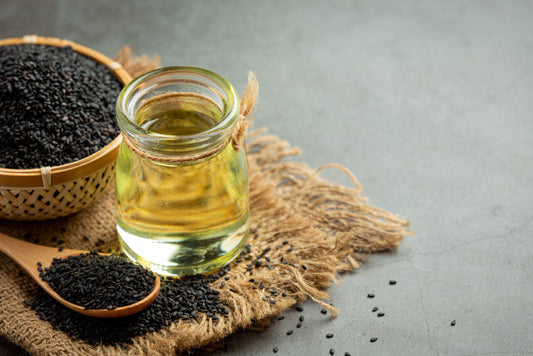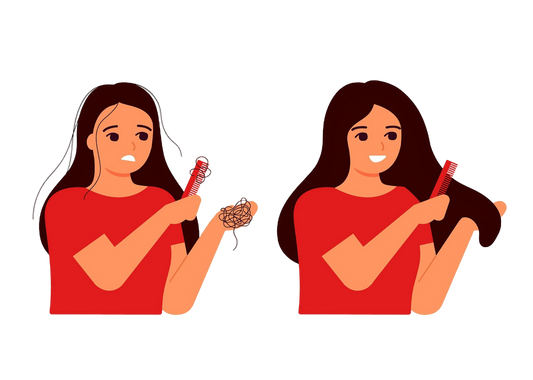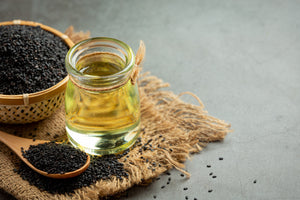Articles

Skin Care
Which vitamins are good for hair health & hair fall?
A lot of people are concerned about their hair's health, and if they are experiencing hair loss or thinning, they are not alone. Genetics, diet, hormone imbalances, and environmental stressors are all potential causes of hair problems. However, maintaining healthy hair is important, as vitamins promote hair growth and prevent hair loss. In this blog, we'll look at the greatest vitamins for hair loss, how they improve hair health, and how to incorporate them into your diet or supplement routine.
Why Are Vitamins Important for Hair Health?
Our hair roots require a steady flow of nutrients to stay healthy, grow, and retain their natural color. The health of your hair is closely related to your food and the vitamins you take. Hair loss can sometimes be caused by a lack of certain vitamins and minerals, and correcting these deficiencies can enhance hair strength, thickness, and overall growth.
Best Vitamins for Hair Loss and Hair Growth
1. Vitamin A
Vitamin A plays an essential role in the health of the scalp and hair follicles. It promotes the production of sebum, the natural oil that keeps hair hydrated and prevents dryness, which can lead to breakage. However, it’s important to use vitamin A in moderation, as excessive amounts can have the opposite effect and may lead to hair loss.
How it helps: Vitamin A supports the growth of healthy cells and tissues, which includes your hair follicles. A deficiency can lead to dry, brittle hair, and even hair shedding.
Sources: Sweet potatoes, carrots, spinach, kale, and eggs.
2. Biotin (Vitamin B7)
Biotin is one of the most well-known vitamins for hair loss and hair growth. It plays a critical role in the production of keratin, a protein that makes up the majority of your hair, skin, and nails. Biotin deficiency has been linked to hair thinning and hair loss, so ensuring you get enough of this vitamin is crucial for maintaining healthy hair.
How it helps: Biotin strengthens the hair structure, reduces hair fall, and promotes hair growth. It also improves the texture of the hair, making it shinier and healthier.
Sources: Eggs, nuts, seeds, avocados, and leafy greens.
3. Vitamin C
Vitamin C is a powerful antioxidant that helps protect hair follicles from oxidative stress caused by free radicals. It also plays a vital role in collagen production, which is essential for hair structure. Collagen helps keep the hair follicles strong, preventing hair from becoming weak and prone to breakage.
How it helps: Vitamin C aids in the absorption of iron, a mineral important for healthy hair growth. Additionally, its antioxidant properties prevent damage to the hair follicles and reduce hair thinning.
Sources: Citrus fruits (oranges, lemons), strawberries, kiwi, bell peppers, and broccoli.
4. Vitamin D
Vitamin D is crucial for the creation of new hair follicles. Research has shown that a deficiency in vitamin D can lead to hair loss, particularly conditions like alopecia. Vitamin D receptors in hair follicles play an essential role in hair growth cycles, and adequate levels of this vitamin can help stimulate dormant hair follicles.
How it helps: Vitamin D supports the growth of new hair follicles, ensuring a consistent and healthy hair growth cycle.
Sources: Sunlight exposure, fatty fish (salmon, mackerel), fortified dairy products, and egg yolks.
5. Vitamin E
Vitamin E is another antioxidant that helps improve scalp circulation and reduces oxidative stress, which can weaken hair. It enhances blood flow to the scalp, promoting a healthy environment for hair growth.
How it helps: By improving blood circulation, Vitamin E nourishes the hair follicles, reducing hair thinning and encouraging healthier, more vibrant hair.
Sources: Nuts, seeds, spinach, and avocados.
6. Folic Acid (Vitamin B9)
Folic acid is essential for healthy cell division, which includes hair follicle cells. Adequate folic acid ensures that hair cells multiply and grow effectively. It also plays a role in the absorption of other nutrients like iron, which is vital for hair health.
How it helps: Folic acid helps to maintain a healthy scalp and stimulates hair growth by improving blood circulation to the hair follicles.
Sources: Leafy greens, legumes, citrus fruits, and fortified cereals.
7. Vitamin B12
Vitamin B12 is crucial for red blood cell production and overall hair health. A deficiency in vitamin B12 can lead to anemia, which is often accompanied by hair loss. Ensuring that you get enough vitamin B12 can help reduce the risk of hair thinning and promote hair regrowth.
How it helps: By improving red blood cell production, vitamin B12 ensures that hair follicles receive the oxygen and nutrients they need to grow strong, healthy hair.
Sources: Meat, fish, dairy products, and fortified plant-based milks.
Supplements for Hair Growth: Are They Effective?
While getting vitamins from food is always the best option, it can be challenging to receive all of the nutrients you need from a single meal. Supplements or vitamins for hair growth can help with this. Many hair care supplements contain a combination of vitamins such as biotin, vitamin D, vitamin C, and vitamin E, which are intended to boost hair health and battle hair loss. By incorporating these natural supplements into your daily routine, you can support long-term hair health and encourage stronger, fuller hair.
Conclusion
Taking care of your hair involves a combination of a proper diet, good hair care practices, and addressing any nutrient deficiencies. Vitamins for hair loss and hair growth play an important role in maintaining strong, vibrant hair. Vitamins such as biotin, vitamin D, vitamin C, and vitamin E are some of the best vitamins for hair loss prevention and promoting hair growth. If you’re facing significant hair thinning or hair fall, consider adjusting your diet or incorporating supplements for hair growth. However, always remember that consistency is key, and patience is necessary for noticeable results.

 Doctor Consultation
Doctor Consultation













